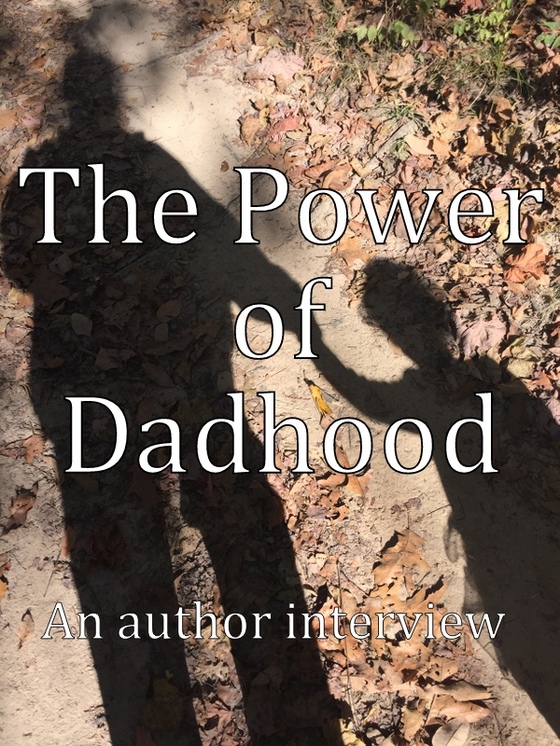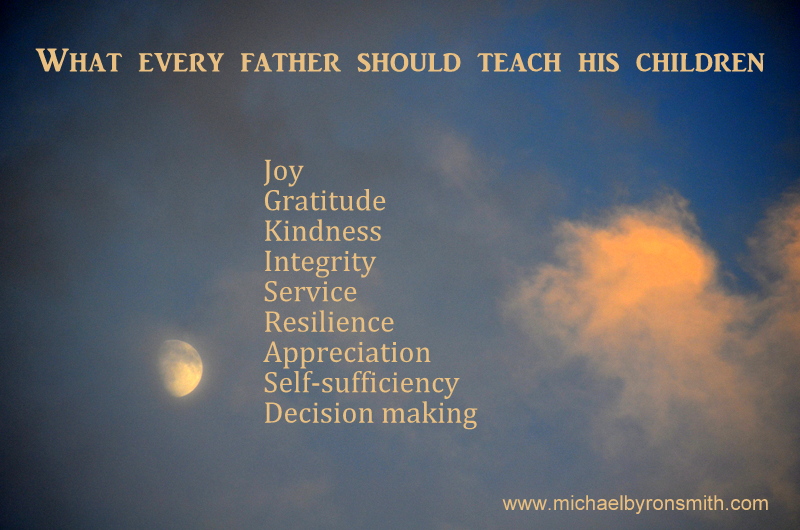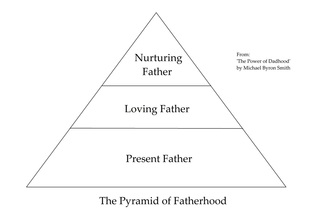|
Please click on the photo to read my interview conducted by Dr, James Sutton of "The Changing Behavior Network" If you are a parent, grandparent, foster parent, teacher, counselor, or other child-service professional, and you want to help children, teens, and their families move past problem behaviors or difficult circumstances, or simply reach a healthier, happier state, you're in the right place. Enjoy, and please share this site with others. --Dr. James Sutton, Psychologist & Host "The Changing Behavior Network"
0 Comments
 Arch on the Mississippi River Arch on the Mississippi River Memorable moments often have a hook. A hook is something that nails that moment into your memory. I’m from St. Louis and this year is the 50th anniversary of the Jefferson National Expansion Memorial, or as we call it in ‘the STL’, the “Gateway Arch” or simply--“The Arch”. The Arch, if you have never seen it live, is an amazing piece of architecture! It is beautiful in its graceful simplicity, yet becomes visually complicated as you approach it from different directions, seemingly contorting into endless shapes and amazing viewpoints. There may have been more photos of the Arch taken over the years than I have of my grandchildren. Actually, a lot more! Almost every snapshot by a tourist, St. Louisan, or professional can be unique. As an example, I will add a few of my own Arch photos I’ve taken over the years as an example of its photogenic nature.  Arch Grounds Arch Grounds A Memory Occasionally, I will post a photography article even though the blog is usually dedicated to fatherhood. But here I will combine photography and fatherhood because the Arch was the focal point of one of the few fond moments I had with my father--and it has stayed with me for over fifty years. It was late 1963 or early 1964, I was 13 and due to circumstances I don’t recall, I found myself downtown on an observation deck overlooking the Arch work site with my dad. The shiny metal legs had started to poke through the earth like two huge transformer-type trees leaning towards each other. It was very unusual for me to be hanging out with my father. He was not the kind of guy to take any of his six children on adventures, even when he was around. It was just the two of us. The last time he did anything with me was about six years prior when he took me to my first Cardinal baseball game at the urging of my mother.  Arch Reflection Arch Reflection I remember looking at the two legs, maybe at 10% of what would be their final height of 630 feet, and projecting in my minds-eye where they would intersect in the sky. It was at night and the weather was cool. We exchanged a few words about how awesome it would be and wondered how each leg would keep from tumbling over before they met at the 630-foot level. Just a couple of blocks away, the construction of a new baseball/football stadium was going on. It was someplace that I would spend quite a bit of my time the next 42 years until another new baseball stadium was built in 2006. I’m feeling quite old having watched Cardinal baseball in three different home stadiums. Knowing how being with my dad on this night stayed with me, I wanted to provide memories for my kids. I even took my son to the construction site of the Rams football stadium in 1994 and took photos of him with the iron framework in the background. I told him how fast time flies and someday he could show this photo to his son. I was thinking back to the time with my dad, wishing we had taken photos that I could show my kids.  Air Show Air Show We all know people who had great memories of growing up with their dad. We also know people who did not. Those relationships may or may not appear to have anything to do with their success in life. But they always do! It may be that a child is successful because of an inadequate relationship with a parent, driven by the need to prove him or herself. That’s not how I wanted my children to succeed. I mentioned a hook in the first sentence. I’m not sure if the hook in this particular memory was the construction of the Arch or having one-on-one time with my dad. Maybe a little of both. Summary Find something to do with each and all of your children. Have some family time and one-on-one time. Create traditions that will be anticipated with delight and discussed in later years. It’s about happiness, warm thoughts, pleasant memories, constructive relationships, and even mental stability. That is the success I'm talking about! My memories of my father afforded me an opportunity focus on fatherhood, turning around a dysfunctional relationship into a forum where I can speak openly and honestly about “The Power of Dadhood”. It is a power that should never be wasted or misused! 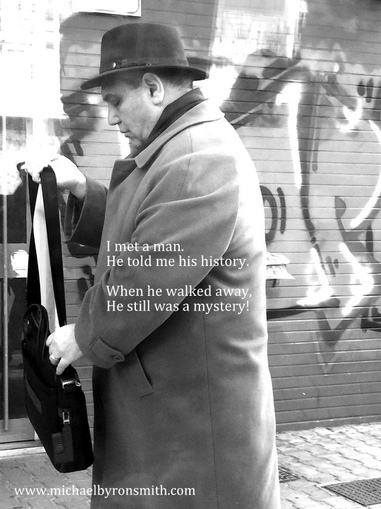 Photo: M.Smith Photo: M.Smith I met a man at a charity event the other day. He was a very successful man of about 70 years of age. How did I know he was successful? He told me. After I heard all that he had done, I had to agree it was quite an impressive career! The charity event itself would not have happened without his influence and help. This gentleman only knew me as an author supporting the event and briefly commented on the title of my book to start a conversation. Of course, I thanked him for his charity and asked how he became involved. From that, he got into a monolog of his career and accomplishments. I learned that over the years this man had many responsible and impressive positions. Currently, he was a vice president of a large company and the president of an international organization. He traveled extensively and knew many influential people. I’m being vague to protect his identity and unlike some who boast, I was certain all he said was true. I wasn’t sure why he was pouring out all this information to me. Clearly he wasn’t trying to sell me anything or influence me to do something for him. When I asked how he managed his time, he said he worked eighteen hours a day, surviving on four and a half hours of sleep a night. I confessed that I needed at least 7 hours of sleep a night, or I was silly putty. I don’t measure up to this fellow in the resume wars but I, too, have a story. However, he wasn't interested enough to ask. Continuing the conversation and trying to be clever, I asked how his wife even knew him with the many hours he worked. As it turned out, he wasn’t married. One wife had passed away and he had divorced the second. But he did have a grown son and daughter, but no grandchildren. I wondered, to myself, if he might be lonely. Why do I bring up this incident? I had a hollow feeling after talking to this man because he seemed to be missing something in his life. His success and influence took a back seat to his demeanor. While likable, there was no life in his face. Maybe I’m wrong. It’s not for me to judge his happiness. I don’t know his relationships with his grown children but when you work 18 hours a day, there isn’t much time for family. We need people like this man, who work hard and give much. But where’s the balance in his life? Certainly we need people to invent, build, lead, teach, save, feed, invest, protect, serve and support society. But when you stop to think about it, that is what good parents do, they invent, build, lead, teach, save, feed, invest, protect, serve, and support their children who, in turn, serve society. I learned quite a bit from this man. I learned that he was a leader, a giver, and a lonely person with lots of friends. I learned that with all he had done, he missed something along the way. I think what he missed was a good family life. But hey, I could definitely be wrong. Being an involved father or a loving grandfather will remove all doubt of your contributions or your role in life. In that, I believe I'm correct! 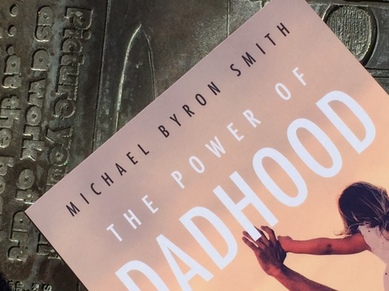 If I had read a piece like this before I wrote my first book, I may have still written it. On the other hand, it would have prepared me for what was to come. This may sound like complaining to some, but I assure you it is not. As a first time author without having a platform, something I will discuss later, I have been very fortunate and I have had a few breaks. But if you read this and still want to publish a book, then you have what it takes! My first act, after deciding I had something important to say, was to research and put my thoughts on paper. It was years of part-time work and countless thousands of hours, but this was the easy part. I just didn’t know that the really hard realities were to come. When you are working in your own bubble, the bubble is all yours. Then you have to go out into the world. The real work began after I finished my first draft having pulled together hundreds of notes, organizing them, and struggling with paragraphing and other technicalities. It was ugly! My daughter, a summa-cum-laude graduate of journalism school, and my first editor told me so--as gently as she could. She never once tried to edit a sentence. It would have been like using a Glade air freshener at a garbage dump. So the reconstruction and the pitfalls began. Following are the pitfalls! 1) A Time Thief It’s not the time you give to the book that you regret. It’s the time it takes away from other activities and people. Things that are important to me include my family--particularly my grandchildren, my favorite hobby of photography, exercise, my farmhouse that needs loving care, and time for my wife and me to relax there. Relaxation becomes a source of guilt because there is always something more to do, both pre and post release. 2) Income Stream? Ha! Writing a book to make money is like buying a lottery ticket thinking you will get rich. Sure, a very few bettors win the lottery and a very few authors make outrageous money, but it won’t be you. Of course, I knew this going in. I wasn’t in it to make money and I was willing to lose money. But how much should one sink into editing, printing, advice, and especially promoting? I’ll talk more about promotion later. 3) Publishers, what's good and bad Getting a true publisher, not a company that helps you self-publish, is very difficult for an unknown first-time author. While they can save you some expenses on editing and printing, you will pay for it later when you only get 6% to 10% of every book sold. My publisher is Familius and I love what they have done for me! Their involvement has given me the credibility I desperately needed. They further edited my book after I had already paid a handsome sum to my two independent editors, and you can NEVER get enough editing. Familius also sold rights to a publisher in China and has distribution in the United Kingdom, Canada, and Australia--huge advantages over self-publishing. They also paid for eBook versions for Nook and Kindle and an audio version on Audible.com. This is more than I could have imagined! So what is not so good? See “Promotion is a bitch”. 4) Building a platform – like that’s easy A platform is the proof of your legitimacy. A Ph. D., past successes, expert status are examples of this. If a pediatrician writes about childhood diseases, he has a ready-made platform. If he writes about art, his status as a pediatrician means nothing. My platform is the simple facts that I was a child who needed his father, and a father myself, not very unique experiences, (The title of my book is “The Power of Dadhood: Become the Father Your Child Needs”). The difference was this, I studied fatherhood. Other than that, my history as an engineer and a pilot meant squat. I further extended my platform by authoring this blog, which folks can read to decide whether I know what I’m talking about or not. 5) You work very hard for the likelihood of disappointment Unlike the lottery where you gamble a couple of bucks, writing a book is quite an undertaking. Also unlike the lottery, lack of the success you want is felt much, much, more. It’s personal when your book seems to be ignored. It’s not really being ignored, it’s just difficult to find, and the author focuses on it much more than anyone else could. I’ve had some success and great reviews, but like Junior Mints, I always want more. Every effort to push it that fails is a disappointment. Again, see “Promotion is a bitch!” 6) You can become an annoyance You want to talk about your book to friends and family plus you want them to help. The problem with that is you can become an annoyance very fast. 7) Competition – Short attention spans, information overload, and billions of books You’ve heard about how difficult it is to get attention. Even the attention you get fades very quickly. This is good for politicians who get into trouble and bad for authors. There is so much competition for your interests and dollars. Going viral is common with the flu, not so with books. 1,000,000 books are published each year and average only 250 sold. Not to mention the billions of books written in the past. For more disheartening info, see The 10 Awful Truths about Publishing. 8) You feel like you’ve never done enough Getting away from promoting is very difficult. No one cares like you. Just when you say I’ve got to get away from this for a while, a glimmer of something good happens and you get pulled back in. The time thief lurks around every new idea. 9) Promotion is a bitch! I don't use the b-word lightly. Outside of initial release, publishers do very little promotion. If you want to sell your book, you must spend a lot of time and money to get a return of $0.80 to $1.00 per book. For instance, I paid a lot of money for a publicist to get media coverage and it was successful from a visibility standpoint. But I would have had to sell 1800 to 2200 books based on that publicity to break even. I knew it wouldn’t happen, but I wanted my message out. As another example, I recently spent $100 to sponsor my blog on social media, which cross-promotes my book. My blog received much more attention, but not one book was sold by Amazon during that promotion. The bottom line is this, you have to decide between your ability to pay for promotion versus your desire to get your message out. There is no economic sense for yourself to promote your published book through advertising. Publishers get 90% of each sale you promote and as a published author, you will likely never get back in sales what you spend on promotion. You need luck more than anything! Summary I knew I would not profit from publishing a book. Of course, I do get royalties, but they won’t catch up to my expenses. What I didn’t know is how much of my time my book would take after publication. When you put so much into a project, it is difficult to turn your back on it. Finding your target audience is crucial. And although I have donated over 200 books to various family and fatherhood organizations, they have yet to respond, except for a couple. Despite all of this, I am very happy I wrote and published The Power of Dadhood! The topic was something very important to me and I saw it through to the end. If just one kid or father or family is helped by reading my book, then it was well worth it to me. So here is my advice to virgin authors. If you can afford the expense; if you have a decent platform; if you can give it the time it needs; if you can handle the potential disappointment, and if you have something important to say, write the damn book and self-publish if you have to! 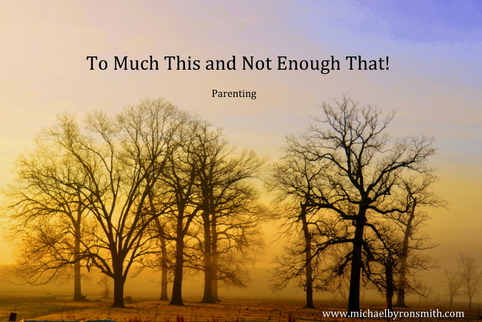 Photo: M. Smith, 2013 Photo: M. Smith, 2013 All parents make mistakes. Some much more than others. Here are a few areas where I think parents can be in error. Read my thoughts and think about those things of which you are guilty as you raise your children. Mistakes do have consequences, but not always. Occasional slip ups usually don’t matter--but consistently doing the wrong things, giving the wrong advice, or not engaging with your children can cause serious issues in the success of your children. The social consequences vary with each child and sometimes great parents have troubled kids and inept parents can have very successful children, but those are merely outliers. Here are some areas where many parents have made mistakes, often thinking they are doing the right thing for their children, other times not really thinking it through.
You might guess by this list that I believe we are coddling our children too much. By us, I mean decent, well-meaning parents. That’s exactly what I am saying! Not all of us are guilty of each charge, but in general, we are guilty of all. I must add that these apply differently to different children. “Too much” for one child may not be “too much” for another. The same can be said for “not enough”. But you can overdo or underdo your parenting no matter the characteristics of each child. A worse problem is the child that gets neither! Neither praise nor challenges, neither mom nor dad, neither enough protection nor proper exposure to those things that will help them grow. These children have no one at their back and it’s truly tough for them to get ahead. The parents of these kids have no business having children. Summary First, children need loving and involved parents. Loving is active love while love alone is just an emotion. Kids don’t know you love them unless you do things that show it, which includes mentoring and discipline. Involvement is not just reacting to a problem. Involvement is teaching, observing, preventing, and correcting. It’s tough and involved work being a parent and too many people go into it without a clue or a desire to get a clue. Think it over. In the beginning pages of my book, “The Power of Dadhood: How to Become the Father Your Child Needs”, I wrote a list of nine things every father* should teach his children. These are deep lessons that cannot be taught until two prerequisites are met. First you must be available to your children. Second, you must be loving and involved. Not until then can you begin to teach these nine lessons. Any father that does so is truly a nurturing father, at the top of “The Pyramid of Dadhood” as described in my book. (see below) I would like to repeat those nine things here and expand on them a bit. As you read them, think about if you have these qualities yourself. A great many of us do not. Why you may not is a question you have to ask yourself. The answer to that question can help you understand why, as a father, you are so important and help you teach these principles to your children. They are: The joy of being involved in life. “I think it’s such a lucky accident, having been born, that we’re almost obliged to pay attention.” —Mark Strand, quoted in Mihaly Csikszentmihalyi’s, Creativity The gift of life is a precious one. Certainly it has it comedies and tragedies, happiness and sorrows, surprises and disappointments, and ups and downs, but you can find or create joy by being involved in life and living. Make things happen, don’t wait for things to come to you. The ability to generate happiness from within. Never expect others to make you happy. It is the fastest way to disappointment and a very self-centered way to live. Wanting is a path to unhappiness while giving is a path to happiness. Attitude and gratitude will bring your own happiness. A deep, genuine kindness toward others. “Kindness is the language which the deaf can hear and the blind can see.” —Mark Twain Some people naturally have the gift of kindness and gratitude. For those who don’t, you must challenge yourself to be kind, and over time, it will come back to you and you will have the gift to pass on to others. Guiding principles that will lead them to a life of integrity. Being described as someone with integrity may be the ultimate compliment. Having integrity requires high principles in which you believe and follow, principles like those listed here. Fathers are key in teaching and exemplifying guiding principles. A strong desire to help others and serve without need for recognition. Take care of yourself so you can then help others. Be sure your help is making those you are helping stronger, not weaker. Giving encouragement, advice, or a helping hand are perfect examples of helping others, especially those younger or without mentors. Resilience, becoming even stronger in the face of challenge. A proverb I’ve seen before goes something like this. “Get knocked down seven times, get up eight!” We all get knocked down and it hurts. Lick your wounds, go through the natural feelings of being upset, disappointed, etc. then learn what caused the failure and come back swinging with a new plan. A love and appreciation for the simple things in life and the awareness to notice them. The best things in life truly are free! A baby’s smile, puffy clouds, the smell of rain, your brain, air, the ability to love, and so much more. What we humans often do is take them for granted. It’s not too difficult to get into the habit of stopping to think about these gifts and soak them in. Always be thankful for what you have and especially what you don’t have. The recognition that they alone choose how to react to any given situation. “Believe in your strength and your youth. Learn to repeat endlessly to yourself, ‘It all depends on me.’” —André Gide You can choose to act or choose to hide. You can choose to be a problem or a solution. You can be positive about life or negative. To paraphrase Andre Gide, it all depends on you! The talent to choose well. Fathers, don't make decisions for your children, help your children learn to choose for themselves with the means to choose well. Summary When a child is introduced to these concepts by their mother or father, it doesn’t guarantee their success, but it does give them the greatest opportunity for a successful life! If a parent is not involved in these teaching these qualities, who will be? No one knows your child as well as you! . . . * Of course, these lessons can also be taught by mothers. Now the "Pyramid of Dadhood"
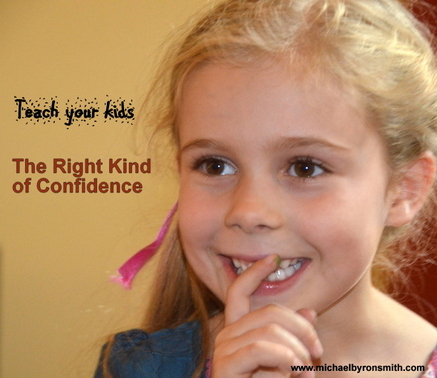 Photo; M. Smith (www.michaelbyronsmith.com) Photo; M. Smith (www.michaelbyronsmith.com) Building confidence in your children is a topic I talk about quite often, almost as much as father absence! Of course, they are related. It’s tough to have the right kind of confidence when you are raised without the guidance of a father. This is especially true for boys, but girls are seriously affected also. ‘The right kind of confidence’ is a key phrase. The bravado of a young man raised without a father’s guidance is often a false confidence, the bravado used to gain acceptance with a substitute confidante or group. This is evident in gangs where boys try to prove their maleness in all the wrong ways, through violence, one-upmanship, and ravaging young women. The right kind of confidence The right kind of confidence comes when you are at peace with yourself and not trying to prove anything to anyone. Truly confident people are not defensive and they have a calmness about themselves. Using this definition of confidence, I don’t know anyone that is completely there, but I do know some that are very close and others that have much work to do. Having the right kind of confidence doesn’t have much to do with age, talent, or looks. It has more to do with conditioning. Parents can build confidence in their kids or tear it down. Key in the confidence of young girls is male approval. Girls are impacted when their lack of confidence drives them to get acceptance in the wrong ways. This is where fathers are crucial. When a daughter is adored, loved, and protected by her dad, she knows she is important, respected, and valued. When ignored by her father, she doesn't get those reassurances. If a girl never hears her father tell her she is intelligent and lovely, she will be charmed and enchanted when she hears it from a boy. The father says it with true love while another male may have questionable motives or a short attention span, leaving the girl emotionally damaged. How to ingrain the right kind of confidence. Here are three ways to ingrain the right kind of confidence in your children. There are others, but these three are critical. 1. Support of family The confidence of kids is much more likely to develop when they have the support of their family. What kid will walk a thin line as confidently as when they have the safety net of their family supporting them? With a strong family on their side, kids will stretch beyond their comfort zone knowing they will have a safe place to land. 2. Praise the right kind of failure Failure is the risk of trying something new to help you grow. There is no shame in failure when we are chasing a reward, but we always try to avoid it. The most common way people avoid failure is by avoiding risks which in turn leads to stagnation. Growth will never happen without the possibility of failure, and overcoming it is the fastest way to gain confidence. Praise failure when the effort is there. It’s up to parents to judge the effort. A single parent may never have the time or energy to encourage a child to take risks or to notice when they do. An inept or selfish father or mother may never consider placing their children in situations that will improve their confidence. Effective parents are always aware of their children’s needs. 3. Reasonable expectations/small steps Set reasonable expectations for your kids. As an analogy, if your kid is a sports car, don’t expect her to haul a big load. If your kid is a truck, don’t expect him to be nimble on curves. Praise their strengths and know their weaknesses. If you place unreasonable expectations your kids, you will set them up for a loss of self-esteem and confidence. For example, I was once placed into a geometry class mid-school year at a new school. I had never been introduced to geometry, and although I had always done well in math, my confidence was shaken when I didn't know what theorems were or how they were related. The academic jump was too much too fast. The way to teach confidence is by methodically conquering incremental goals that are challenging but reachable, and never stop. Summary Families are key to the confidence of their children. If families are troubled, fractured, or uncommunicative, there is little hope for finding answers to the problems and fears of children. This situation will drive them elsewhere for guidance and support, which could be devastating depending on where they go to find it When families are whole and aware, when there are two parents that are working together, then proper attention and support within families are much more likely to occur, and children will have a fair chance to succeed. 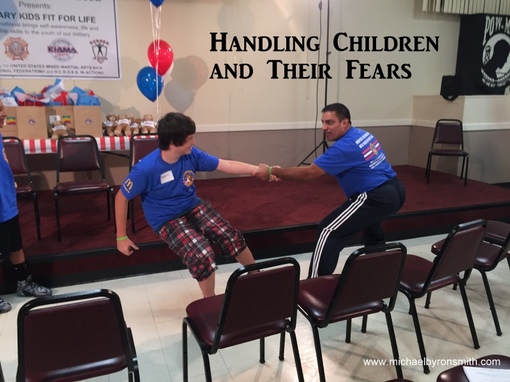 'Little Patriots Embraced' teaching self-defense techniques. Author, Ray Amanat 'Little Patriots Embraced' teaching self-defense techniques. Author, Ray Amanat “The oldest and strongest emotion of mankind is fear…and the oldest and strongest kind of fear is fear of the unknown.” – H.P. Lovecraft What scares you the most? Speaking in front of an audience or jumping off a boat into the middle of the ocean, without a life jacket? I’m not comfortable with either myself, but I would certainly talk to an audience before I would jump into the ocean. Many reading this would choose the opposite and jump in the ocean. In my case, however, I am not a strong swimmer and the power of the ocean has always frightened me. It may be irrational for me to be afraid of speaking to an audience, but it is smart for me to be afraid of the ocean until I have the talent and know the precautions to deal with its threats. Fear of the unknown is the most common fear, although fear of the known is not too uncommon either. Most fears are developed when we are children and can be conquered by facing them straight on! Parents are key in that parents can minimize the fear of the unknowns while emphasizing the fear (respect) of the dangerous knowns. Fear of what? When your children resist doing something they need to do, you can bet fear is more likely involved than stubbornness. Fear is the most common cause of resistance. I changed schools quite often and because I was so shy, I hated being introduced as a new kid in a classroom. I would put up such a fight to put off the inevitable that I surely wore my mother out, and I was just one of six! Strangely, this is a fear I faced multiple times; and even though it was never as bad as I imagined, facing it never made the next classroom introduction easier. There is something to be learned in that. Maybe, the fear was not meeting new kids and a new teacher in a new environment. Maybe it was that I never faced the fear that I was not good enough? I think that was it, but who knew and what could they do about it? Had I heard encouraging words about myself, not that I was special, but that I was the kind of kid that other kids could like and no one was better than me, then I possibly wouldn’t have had the fear of being shunned or talked about. My fear of new situations would never go away no matter how many times I faced it because the real issue was my overall confidence when I was a kid. I needed to face the issue of confidence and experience success in social situations. The point of this story above is to be open to what the cause of the fear may be. What seems obvious may be wrong. The fear of the new classroom was real, but the root cause was my fear of not being good enough. Too often we try to fix the wrong fear. When we that see our efforts to diminish the fear is not working, we should look deeper. My fear of the ocean is really my fear of being able to handle the dangers of the ocean. If I learned to swim better, knew how to use swimming gear and trusted those around me, my fear of the ocean would subside to a more reasonable and respectable level. Fear can work for you. That brings me to another aspect of fear. Fear is good too! Fear can keep you, or your children safe. Children should be taught the dangers of drugs, the appropriate fear of strangers, or the dangers of texting while driving. Fear of these and other threats will serve to help your children understand they should not take chances regarding things they can’t handle. My fear of the ocean may have prevented me from drowning until I was better prepared. This kind of fear is more accurately called respect for dangerous situations. Fear is the beacon the shines on what you need to work on. As mentioned, I don’t feel all that comfortable speaking to an audience. Knowing that is a weakness, I joined Toastmasters a couple of years ago. I wish I had done it much sooner. The exposure of Toastmasters gives me a chance to gain confidence as a speaker in a supportive atmosphere. I now know I can speak to an audience, a far cry from my days of sheepishly walking into a new classroom. For children, fear of bullies is a particularly common fear tells them something must be done to counter that fear. Bullying What can we do? I recall being bullied as a kid. I avoided bullies any way I could, but once confronted, I didn't know what to do. I didn't want to run, nor did I want to fight. I tried to talk my way out of it and sometimes I did. The bullies were often satisfied by that fact that you were scared of them--boosting their fragile, misguided egos. It seemed the bullies I dealt with always came in twos, which shows you who the cowards really were. There are things parents can do. I highly recommend a book to help your children with bullying, one of the greatest fears of children. It's title is: “Bully, Victim, or HERO: How to Assert Yourself Without Being a Target for Bullying or Violence” - By Ray Amanat This book has rules, tips, and scenarios to avoid being a victim. It also teaches how to stop self-sabotaging which attracts bullies, how to stand up for yourself non-aggressively, and how to be assertive without being violent. It is a must for bullied kids! Summary “Caution befriends the adventurous and betrays the meek”- The Power of Dadhood Introduce your children to as many different people and situations as you can. No doubt personality plays a huge role in what kids fear and how they overcome them. It is not unusual to have one child who has to be talked into things and another who needs to be talked out of things. Spare judgment on either and be careful not to compare. No one knows your kids as well as you, the parents do. Who better to protect them from dangers they don’t understand or to mentor them through fears that are irrational. Facing fear is the quickest way to defeat it. Teach confidence to your kids in small manageable bites. I will discuss confidence in my next article. As I mentioned earlier, parents can minimize the fear of the unknowns while maximizing the fear of the dangerous knowns. If you don’t do it, who will? 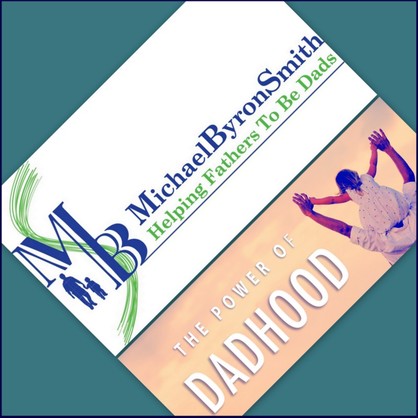 This article is a little different than most of my posts. In it, I talk more about my book than a particular fatherhood/parenting topic. It’s not for those who already know me and my story to learn more. It’s for those who don’t know me, and also for those that do, to spread the word. In my mind, ‘father’ is a noun and ‘dad’ is a verb. Through my book, “The Power of Dadhood: Become the Father Your Child Needs”, I strive to help more fathers to become dads through information, encouragement, and advice. There are many good books that talk about being a father, just like there are many fine books on cooking, or Lincoln, or finance. The focus of these books vary and books on fatherhood are no different. I’d like to discuss why my book is distinctive and why I need help in getting the word out. What's different? Most fatherhood books are targeted towards new dads. Other dad books are full of humorous and heartwarming stories. There are also books that have excellent advice on raising teens. The focus of my book, however, is not how to diaper a baby and it certainly isn’t a comedic masterpiece. It is, however, a heartwarming look at fatherhood and perfect for new dads—but they need to keep it nearby as their children grow. It is a book for all dads and all seasons, i.e. from birth to toddlers to teens to grand-parenting, emphasizing prevention of issues over correction of problems. Beyond practical advice, “The Power of Dadhood” has a social consciousness and societal influence. The ‘power’ of ‘dadhood’ is the ability to save lives and build strong men and women! Dadhood also has the power to improve society, one child at a time. Fathers have a seminal impact on all aspects of our culture. Encouraging men to be involved dads and teaching them how to do this can have a cumulative positive impact on relieving poverty, crime, and mental health, but it also has to happen one father at a time. I try to point out this fact using eye-popping and horrendous social statistics of fatherless children. But I don’t stop there! The bulk of the book provides tools and suggestions for being an effective dad and a hero to his family. Back Story I am a former military officer and civilian engineer, never a professional writer or psychologist. I never exceled on essays in school nor did I spend much time on English or composition. This book was an arduous fifteen years of research, reflection, and taking notes on an issue I think has been seriously ignored. Organization was a challenge. Without the help of many editors, the first and most important being my daughter, April, my book would never have seen the light of day. I did this because I had something to say. It was quite a break and semi-miracle to get a publisher. I had promised that I would do all I could to publicize my book. I, therefore, hired a publicist who did a great job getting me interviews regarding my book on TV and radio. After all, I was a first-time author without a name or platform in the area in which I had written. I knew it would be highly improbable that I could sell enough books to make up for the cost of the publicist. But profiting was not my goal. My goal was helping fathers to be dads. I continued to try to find ways to get my book to those who could use its advice and message. This included Facebook ads, Google ads, guest articles on other blogs, an ad on a parenting website, and a couple of podcasts. The most time-consuming activity these days is this very blog. Along with my book, it is crucial in getting my message out--that being the importance of active fathers in the home. I enjoy the challenge of this blog and every time I publish an article I hope, ‘maybe this is the one that will catch the attention of a key individual or program’. The Power of Dadhood has received excellent reviews and, considering my lack of star quality, has done well. I have exceeded every dream and promise to myself to communicate what I have experienced and learned about the importance of fathers. But I can’t stop yet. Healthy Families! I want more discussion on how to make families healthy, the most obvious way in my mind is to first get fathers to be fathers. It’s not that there aren’t poor mothers, but that problem is a distant second. When families work together, when they communicate, teach, and support each other, all the other problems of our society diminish. My book doesn’t have to be the vehicle to do this, but it is the only vehicle over which I have any control. Lately, I’ve been gifting “The Power of Dadhood” to organizations and charities that work in the area of helping fathers and families. Sending it to key institutions for free is likely more effective than advertising. A Request Please do me this favor. It is no surprise that very few people know of my book. If you know an organization that works to help families and the sanctity of fatherhood, please let me know of them so I can share my book. I may have already communicated with them, but tell me anyway. Also, tell others, especially young parents, about my book. Loyal readers of this blog are already on board. I need more exposure and my best bet is a network that will mention or give it to friends and family. Donate it to a library or organization you support. In short, let’s get the conversation going and action towards solving this problem of missing and/or inept fathers, the root cause of so many other social issues. Thank you! |
Click on cover to order!
A review of "The Power of Dadhood" by About.com
'Helping Fathers to be Dads' Facebook page
Archives
June 2025
Categories
All
|

|
|
